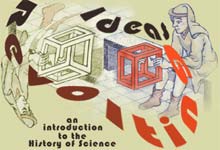
University of California, Irvine
Instructor: Dr. Barbara J. Becker

|
|
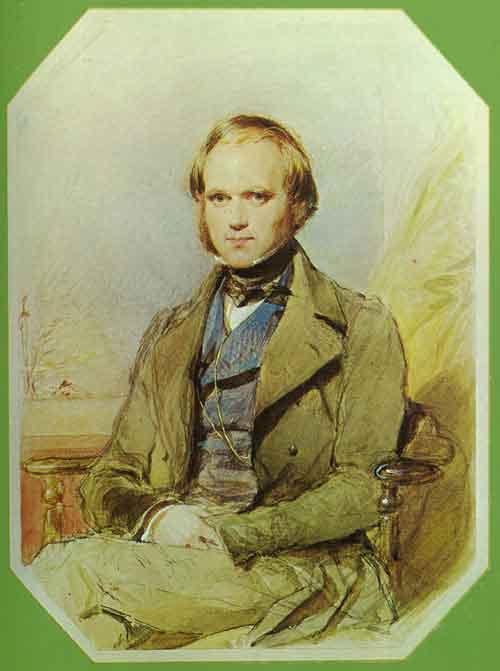 |
Events in the Life of Charles Darwin |
1809 |
• born |
1828-1831 |
• student at Cambridge University
• developed interest in geology |
1831 |
• began voyage on Beagle |
1835 |
• experienced earthquake in Chile
• explored Galapagos archipelago |
1836 |
• returned to England |
Voyage of the Beagle (1831-1836)
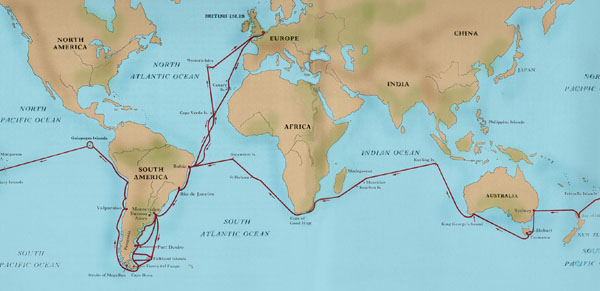
|
|
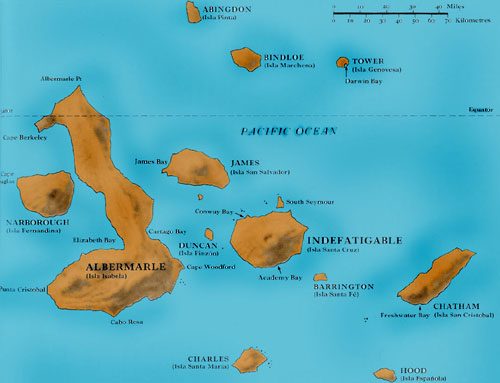 The Galapagos Islands |
October 1836 |
• returned to England from Beagle voyage |
January 1837 |
• donated Galapagos specimens to Zoological Society of London |
March 1837 |
• met with ornithologist, John Gould
• all Galapagos birds are species of finch |
September 1838 |
• read Essay on ... Population by Thomas Robert Malthus (1766-1834) |
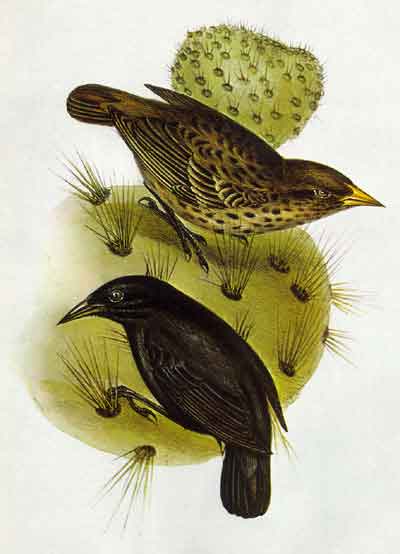
Lessons from the Finches |
|
excerpts from Darwin's Journal of Researches (1839) [I]n the thirteen species of ground-finches, a nearly perfect gradation may be traced, from a beak extraordinarily thick, to one so fine, that it may be compared to that of a warbler. I very much expect, that certain members of the series are confined to different islands.... |

Lessons from Malthus |
|
"Struggle for existence" involves:
Any difference, however small, can be an advantage. Artificial selection as practiced by breeders is a practical model for natural process of selecting fittest individuals. |
1842 |
• completed 35 page "Sketch" outlining theory of descent with modification |
1844 |
• completed 230 page "Essay" detailing his theory |
| •Vestiges of the Natural History of Creation published by anonymous author [Robert Chambers (1802-1871)] |
excerpt from Vestiges.... These facts clearly shew how all the various organic forms of our world are bound up in one--how a fundamental unity pervades and embraces them all, collecting them, from the humblest lichen up to the highest mammifer, in one system, the whole creation of which must have depended upon one law or decree of the Almighty, though it did not all come forth at one time. |
1844-1854 |
• Darwin honed his argument through rigorous study of barnacles |
1856 |
• began work on massive treatise on natural selection and evolution |
1858 |
• received manuscript from Alfred Russel Wallace: On the Tendencies of Varieties to Depart Indefinitely from the Original Type |
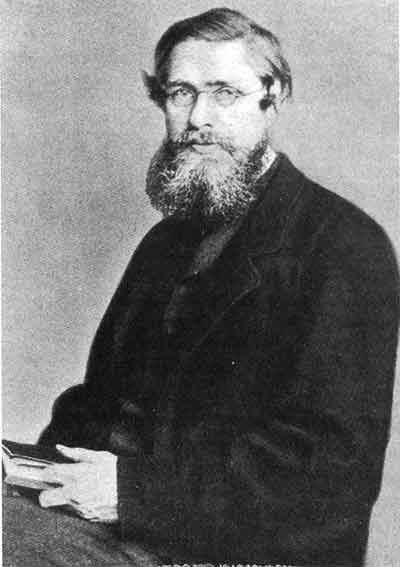
excerpts from
On the Tendency of Varieties ... (1858) by Wallace |
It is ... "a struggle for existence," in which the weakest and least perfectly organized must always succumb.... |
1859 |
• Darwin published On the Origin of Species by means of Natural Selection ... |
|
|
|
|
|
| struggle between individuals | struggle between individuals and environment |
| artificial selection analogous to natural selection | not convinced that animal breeding is legitimate model |
| colorful plumage results from sexual selection of males by females | colorful plumage results from inter-male combat |
| man is an animal like any other | man is a special creation |
|
|
Can cooperation be an adaptive feature?
Why do organisms retain useless organs?
How long can the sun burn at its current rate?
How can one individual spawn a new line of organisms? |
|
|
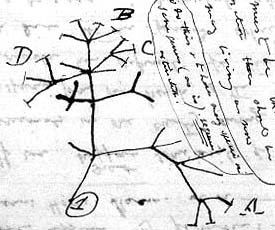
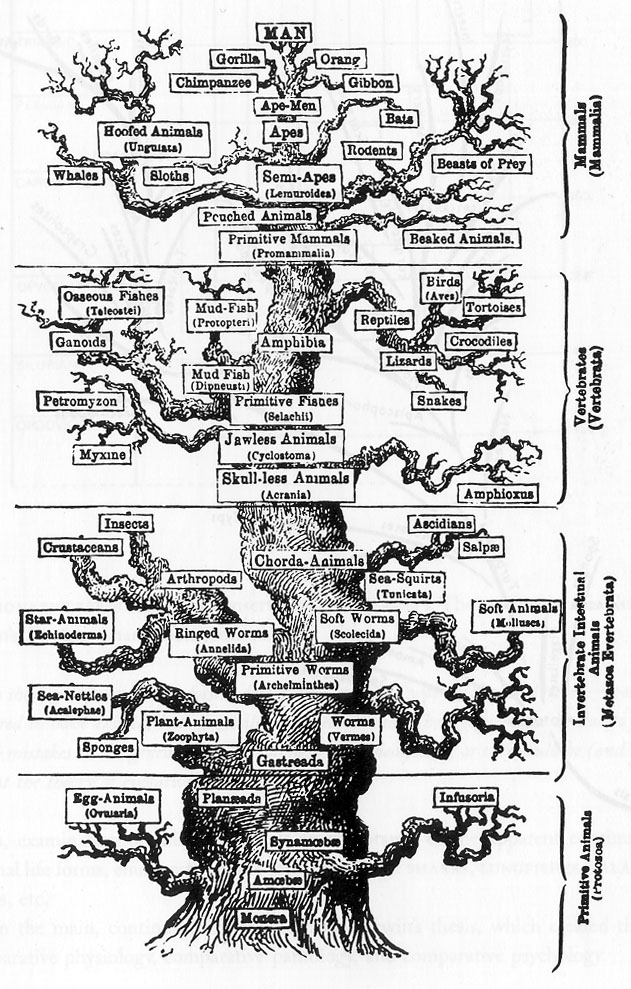
|
|
If animals and plants grow by cell division, what insures that daughter
cells will resemble parent?
If new cells inherit patterns from parents, what accounts for variations among offspring?
|
| Go to: | |||||||||||||||||||||||||||||||||||||||||||
|
|||||||||||||||||||||||||||||||||||||||||||
|